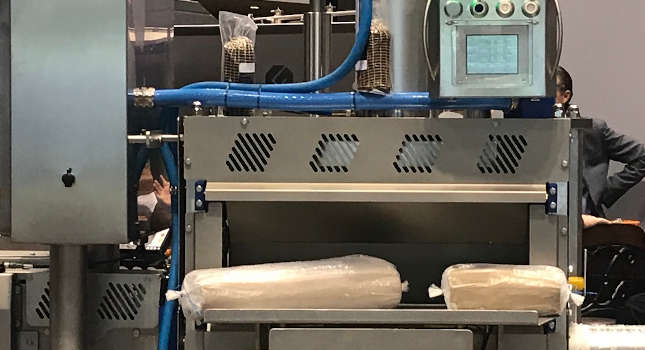For forward-thinking food manufacturers, meeting the upcoming Food Safety Modernization Act (FSMA) 204 changes is a chance to get ahead of grocery and other customer requirements, which are bringing in similar requirements.

Learning Objectives
- Learn what FSMA 204 is.
- Understand the coming changes that food manufacturers need to be aware of.
- Review FSMA 204 compliance and how overall operations can be improved.
Process safety insights
- FSMA 204 demands 24-hour electronic traceability to the FDA, emphasizing batch management and backward tracing from retail units.
- Compliance benefits include improved labeling, reduced recall sizes, and pathways to paperless traceability, enhancing supply chain efficiency.
For forward-thinking food manufacturers, meeting the upcoming Food Safety Modernization Act (FSMA) 204 changes is a chance to get ahead of grocery and other customer requirements which are bringing in similar requirements themselves. In some ways meeting these requirements and piloting the labelling, marking, traceability, logistics system upgrades as well as operational changes are easier when under the pressure of an impending regulatory requirement. In this article, we’ll explore what these changes entail, why they matter, and what steps your organization needs to take to not only comply but to excel in the new regulatory landscape.
FSMA falls under the authority of the Food and Drug Administration (FDA). The changes coming with FSMA 204 will go into effect and become enforceable in January 2026, leaving about 18 months for food manufacturers who sell product in the United States, to prepare for these updated regulations. A list of which products require additional traceability and electronic record keeping is on the FSMA website listed under the Food Traceability List (FTL). Although this may seem like an extended period to prepare, FSMA requires planning, budgeting and engaging with suppliers as well as end customers since quality data must be transmitted downstream through each step in the supply chain.
What FSMA 204 means for users
-
24-hour traceability in electronic format sent to the FDA – existing paper-based traceability methods will not be able to keep up.
-
An emphasis on tracing backwards from individual retail units backwards.
-
Greater batch management of finished goods.
Navigating key FSMA 204 requirements
Here’s a snippet of what’s to come with FSMA 204:
-
Data tracking and transfer: Expect an emphasis on due diligence in ensuring the safety and quality of ingredients from your suppliers. This includes documentation of supplier approval and verification activities. Food manufacturers will need to keep data and tracking on key events. These “key data elements at critical tracking events” must be supplied downstream through the supply chain.
-
Electronic traceability: If the FDA asks, manufacturers will need to provide the records and those key data elements electronically to FDA within 24 hours. This will mean manufacturers who are still using paper records will be at an extreme disadvantage, as it will be very challenging to search paper records, gather details and send the details to the FDA within 24 hours. Electronic records will make data much easier to search, report on and share while also making this requirement much easier to meet.
Three benefits of FSMA 204 compliance
Meeting FSMA 204 will be a challenge for many manufacturers but there are some benefits beyond just compliance:
-
Improved case marking/labelling: Grocery and other customers are increasingly automating, and to do this are requesting greater barcoding and marking of cases, and pallets. Meeting FSMA typically involves improved case printing, labelling, and marking which can be extended to meet customer requirements or at least define a company blueprint for FMSA lines which can be copied on other lines.
-
Reduced recall size: Future recalls should be smaller, and faster to identify the required scope of the recall.
-
Pathways to paperless traceability: FSMA compliance, and the mandatory nature of it, can be a tool to implement get funding and corporate energy behind electronic traceability initiatives.
While FSMA 204 compliance seems like a major challenge for many manufacturers, its goal is to prevent authorities from recalling an entire food group or product from the market, causing immediate and lasting damage to the entire industry and not just one manufacturer.
David McKenna, smart packaging practice leader, Grantek. Edited by Chris Vavra, senior editor, Control Engineering, WTWH Media, [email protected].
MORE ANSWERS
Keywords: System integration, system integrators, food safety
CONSIDER THIS
In what way does FSMA impact your facility?



